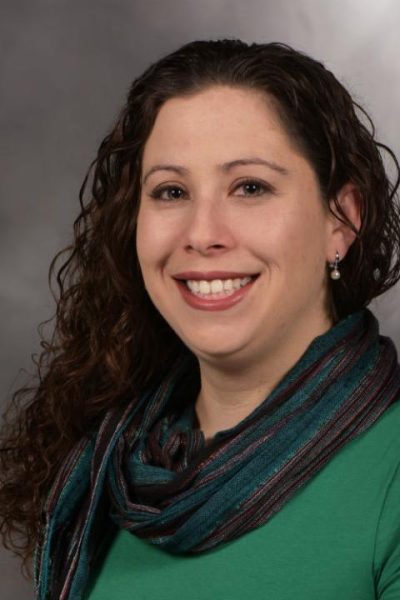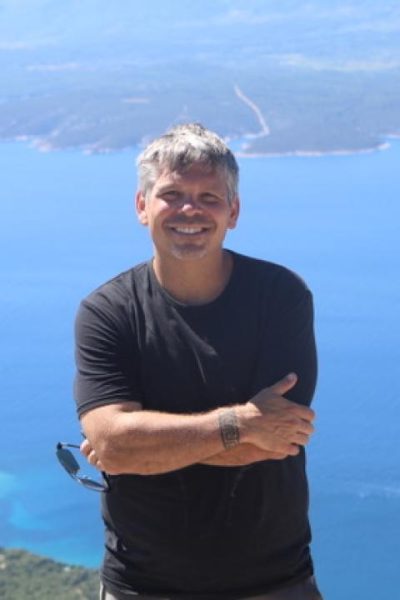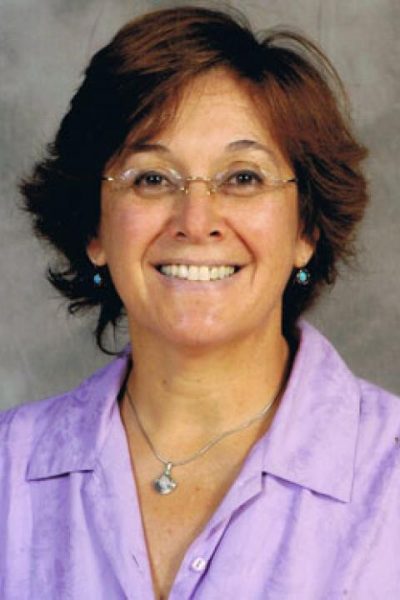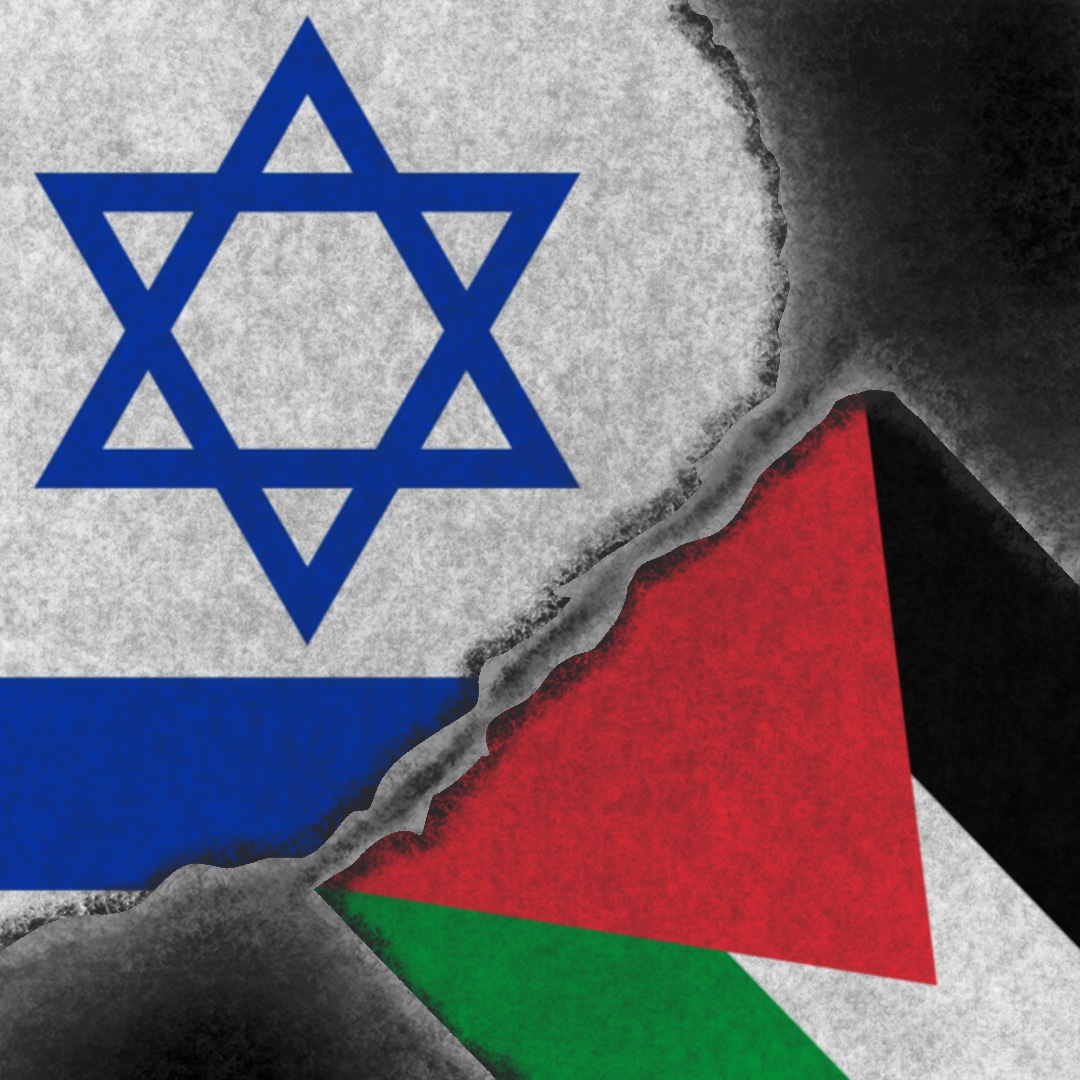With the ongoing Israel-Hamas war in the Middle East, university professors discussed the impacts the war has on both Israelis and Palestinians and how they think a resolution can be reached.
Militant and political organization Hamas launched an attack on Israeli towns near the Gaza border Oct. 7, killing more than 1,400 people. In the weeks since, Israeli minister of defense Yoav Gallant announced a “complete siege on Gaza,” cutting off food, water and fuel to the city as a retaliation following the attacks. This marks the latest in conflicts between the groups that have been ongoing for decades.
Mass destruction has spread across the region, as the Israeli military has launched repeated airstrikes on Gaza, killing over 2,600 people. As of Oct. 15, Israeli officials have ordered 1.1 million Palestinians to evacuate south of the Gaza Strip in anticipation of an invasion.
Back in the United States, protests and rallies advocating for multiple sides of this conflict have taken place. Around campus, demonstrations occurred, with one supporting Palestinians and another advocating for Israel on Oct. 12.

Johanna Solomon, assistant professor in the School of Peace and Conflict Studies, said for conflicts similar to this, there are no neutral opinions because of the circumstances surrounding people.
“I think it’s important to say that there is no such thing as a neutral perspective, that human beings are not neutral,” Solomon said. “There is no such thing as an objective opinion about most things in social sciences including and especially things like war.”
Based on this, some like Joshua Stacher, a professor in the International Studies program, said the situation has been an ongoing conflict prior to the Hamas attack Oct. 7.
“Most people think this story started on Saturday morning at 6 a.m., right? It did not start Saturday morning at 6 a.m.,” Stacher said. “Gaza has been under Israeli blockade since 2006, that means Israel has controlled everything that goes out of the Gaza Strip.”
Chaya Kessler, the university’s director of the Jewish studies program, said the attacks were a surprise.
“It was a surprise attack by murderers, terrorists – the Hamas who entered with one goal only to murder Jews, not to free Palestine, not for any cause, it was to murder Jews and they did,” Kessler said.
Stacher said the Israeli government is treating all Palestinians as if they are members of Hamas.

“That is collective punishment, that is a war crime,” Stacher said. “Now Israel has been told multiple times, since it’s been attacked, you are about to commit war crimes, you are committing war crimes and they’re doing it anyway.”
Stacher compared what occurred in the Gaza Strip to the events of 9/11 regarding the treatment of individuals.
“I could feel from the loss of 3,000 American lives that my society wanted revenge,” Stacher said. “What did we get when we were attacked by criminals and opted for revenge? And that’s the question Israelis have to deal with today.”
Kessler said the attacks are one of the worst nightmares since the Holocaust.
“There was a freakin’ rock concert and [the Hamas] slaughtered these people – people ran away,” Kessler said. “There were 260 people that they murdered, [a survivor] hid himself among the dead and covered himself, for eight hours, with dead bodies, and he said he felt like he was in the Holocaust.”
Kessler, who is from Israel, said she has been impacted by these events, as some of her family members currently live in Israel and have endured the ongoing attacks.
“[My family] have been sitting since Saturday in a bomb shelter,” Kessler said. “They have three little kids. They can’t go out, there’s no work, there’s no school, everybody’s on edge, people can’t leave. There’s nowhere to go basically. So, yes, it has affected me.”
In regard to a resolution between the two sides, Stacher said the answer can come in the form of more equality and democracy.
“Whatever the question is, those are the answers,” Stacher said.
Kessler said she would like to first see a talk occur between the two sides.

“The resolution I would love to see is a negotiation, exchange for the hostages, bring back those who were taken and then let’s talk, let’s first do the human thing,” Kessler said.
Intergroup dialogues, discussions among individuals from different regions, religions or races, are important to understanding people’s different perspectives, Solomon said.
“Often our assumptions are challenged in dialogues, and we find that we either have different ideas than even we thought we had,” Solomon said, “or that we believe we have more in common with some who have the same religion or race as us.”
Solomon said intergroup dialogues challenge these previously convinced beliefs about conflicts such as the war and help people realize they have ideas in common with people who are different from them.
“Often dialogues complicate who we feel like we are most similar to,” Solomon said.
These intergroup dialogues have been able to bring those a part of the non-profit organization Parent Circle — Families Forum which is composed of Israelis and Palestinians who have lost a relative to the Israeli-Hamas war, Solomon said.
“The Parent Circle comes together and meets not because they all agree on what the outcome should be, they don’t, not because they don’t have anger or hatred or blame,” Solomon said. “They believe that the answer isn’t more violence, that the answer is to somehow come together and have very difficult conversations.”
Besides having intergroup dialogue, Solomon said it is important as a community at the university to come together and offer support to anyone who has lost a relative from the recent events.
“These are all Kent State students, and we need to make sure all of these Kent State students are able to openly deal with their grief, that they are supported,” Solomon said. “That we are coming together as a community to support anyone that has lost loved ones to war no matter what their identity is.”
Adriana Gasiewski is a staff reporter. Contact her at [email protected].



